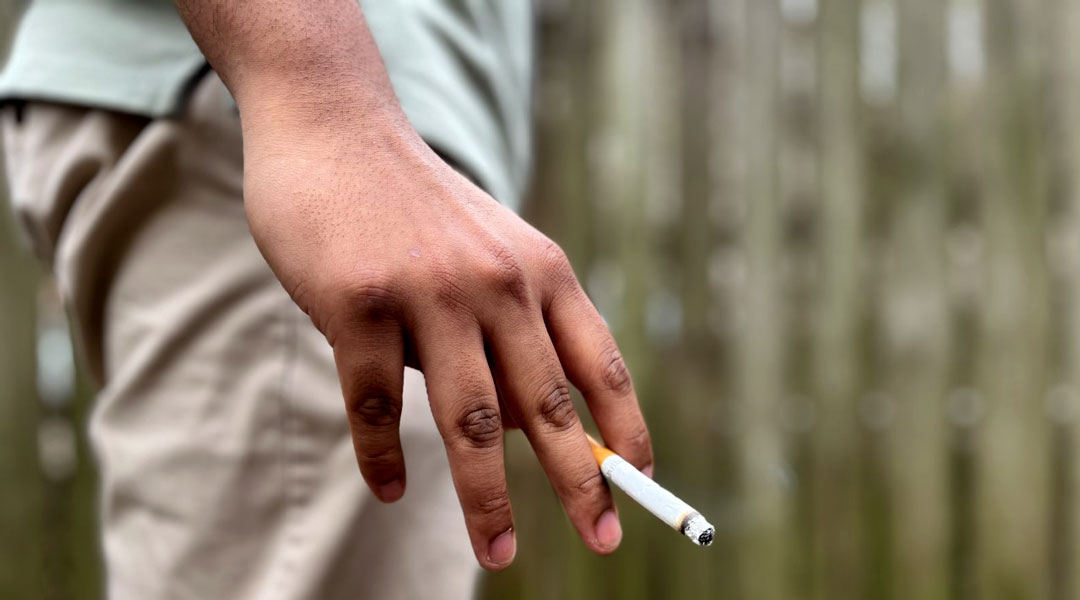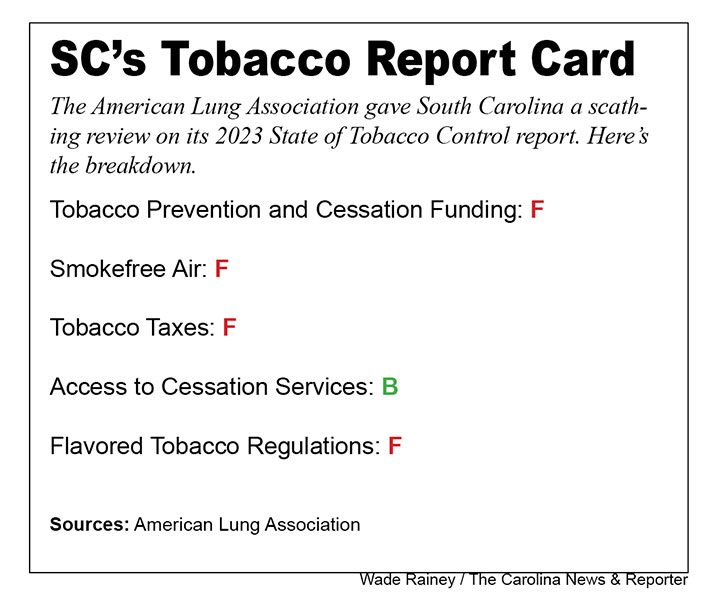In South Carolina, both youth and adult smoking rates are higher than the national average. The state is also one of 10 that do not require a tobacco license for retailers. (Photo by Wade Rainey)
State lawmakers could stop cities and counties from restricting the sale of tobacco products in South Carolina.
Legislation passed by the Senate Medical Affairs committee Wednesday would prohibit local governments from passing laws restricting the availability of tobacco or nicotine products. Any local laws passed before Dec. 31, 2020, would be grandfathered in.
Senate majority leader and one of the bill’s sponsors, Sen. Shane Massey, R-Edgefield, thinks the law will give business owners more autonomy and help South Carolina’s economy.
“The objective of S.414 is to protect South Carolina businesses and consumers,” he said in an emailed statement. “The bill ensures consistent laws statewide rather than a confusing and unworkable patchwork of varying laws.”
Opponents of the bill worry, though, say it would weaken health-driven tobacco regulations across the state.
One of the main concerns is the impact on South Carolina’s younger population.
“Most people who become addicted to nicotine start smoking before 21,” said Meghan Kissell, a regional advocacy director for Tobacco-Free Kids.
Almost 90% of smokers have their first cigarette before the age of 18, according to the Food and Drug Administration.
South Carolina’s rates of youth nicotine usage, especially e-cigarettes, are much higher than in the rest of the country.
“The national average is that 14% of high schoolers are using e-cigarettes,” Kissell said. “In South Carolina, it’s 21%.”
The S.C. high school smoking rate is nearly three times higher than the U.S. national average as well, 5.9% to 2%.
The bill comes on the heels of the “The State of Tobacco Control 2023” report released last month by the American Lung Association.
The report gave South Carolina an F in all categories except for one: access to resources to help addicts quit.
The American Cancer Society Cancer Action Network released a statement in response to the bill, saying “this week’s action is just the industry’s latest pressure on lawmakers to hurriedly advance legislation that threatens the future health and wellness of our children.”
Kissell, of Tobacco-Free Kids, thinks local governments should be able to make their own decisions.
“Local communities are saying, ‘Hey, how about the health of the community that’s living here?’” she said. “We can (pass legislation) in a way that’s actually not a hindrance to retailers and not a hindrance to tobacco companies.”
Some cities already have passed severe restrictions in other parts of the country. Beverly Hills and Manhattan Beach in California are the only two municipalities to ban commercial tobacco sales outright.
Others, such as Brookline, Massachusetts, have implemented policies preventing anyone born after 2000 from purchasing tobacco products – ever.
Chris Bostic, a policy director for the national nonprofit Action on Smoking and Health, thinks such bills are a reaction to what’s happening both in the United States and worldwide.
In December, New Zealand passed one of the most restrictive tobacco bills in the world, banning the sale of products to anyone born after 2008, reducing the level of nicotine in all products to non-addictive levels and reducing the number of retailers by 95%, Bostic said.
“They are dead serious about ending the epidemic there,” he said. “A lot of people have come forward and said publicly that they’re looking at what New Zealand is doing and want to do it in their own countries, including the European Union itself.”
This isn’t the first time the state government has clashed with local governments over jurisdiction.
In 2019, the city of Columbia passed various gun control measures, including one allowing for the seizure of firearms from people who are under a protection order for bring a threat to themselves and/or others.
S.C. Attorney General Alan Wilson sued the city over the laws. Circuit Court Judge Jocelyn Newman ruled in Wilson’s favor in May 2021.
The tobacco bill’s next step is a full vote in the Senate. It would then move on to the House.



